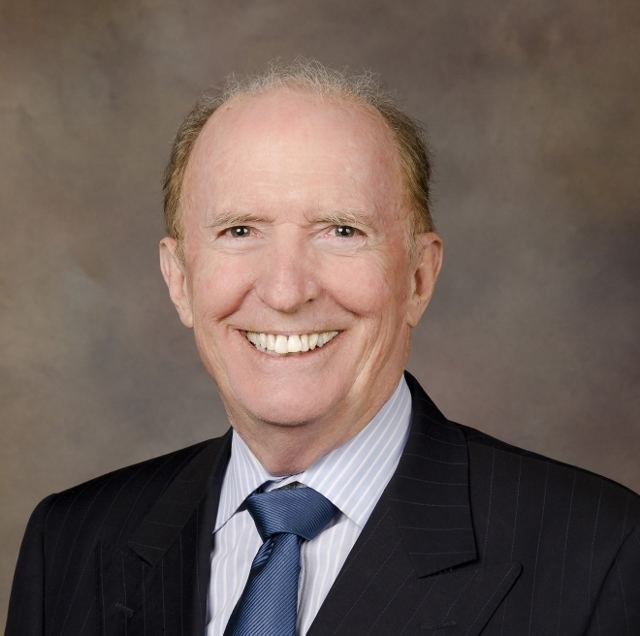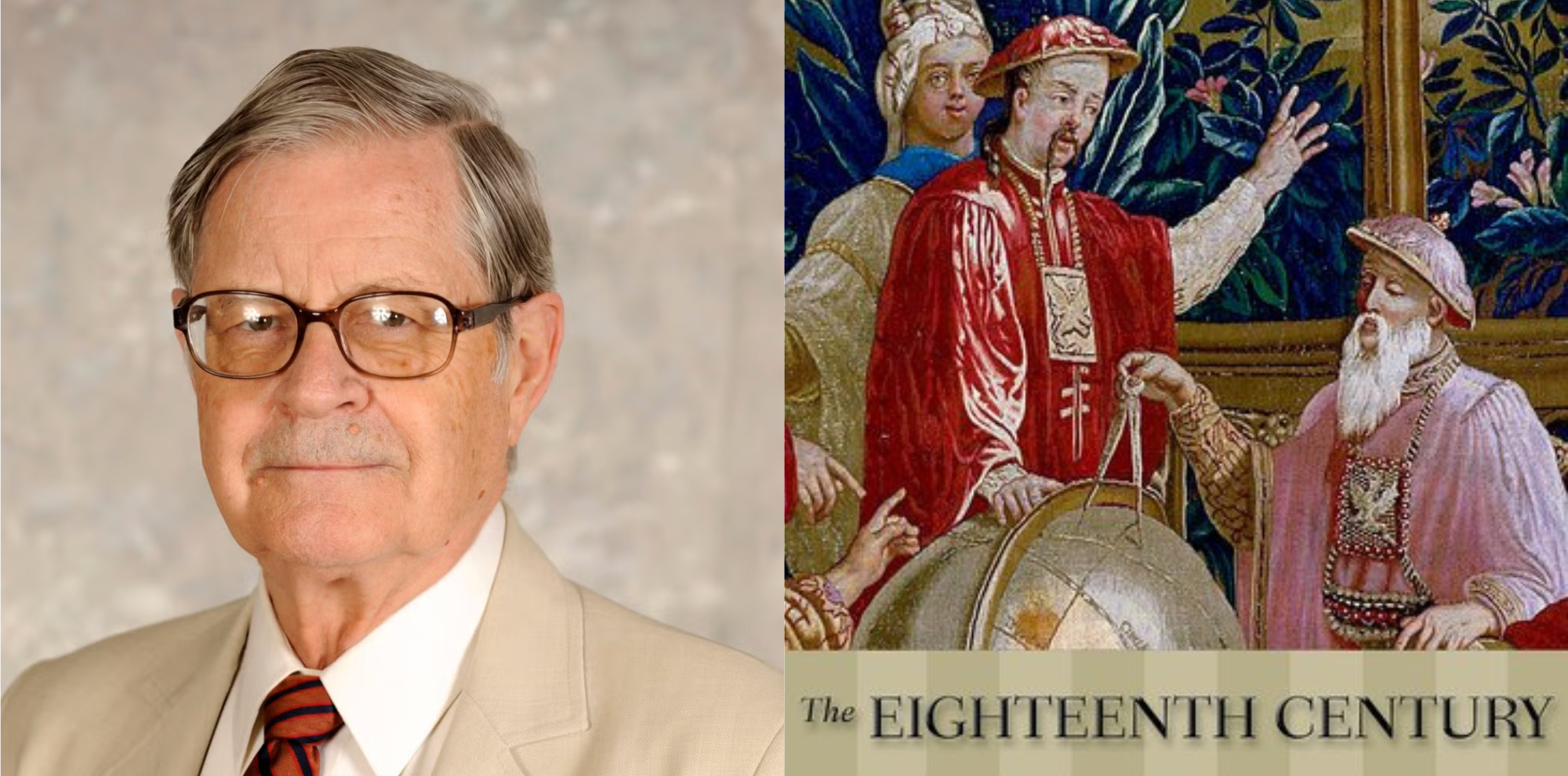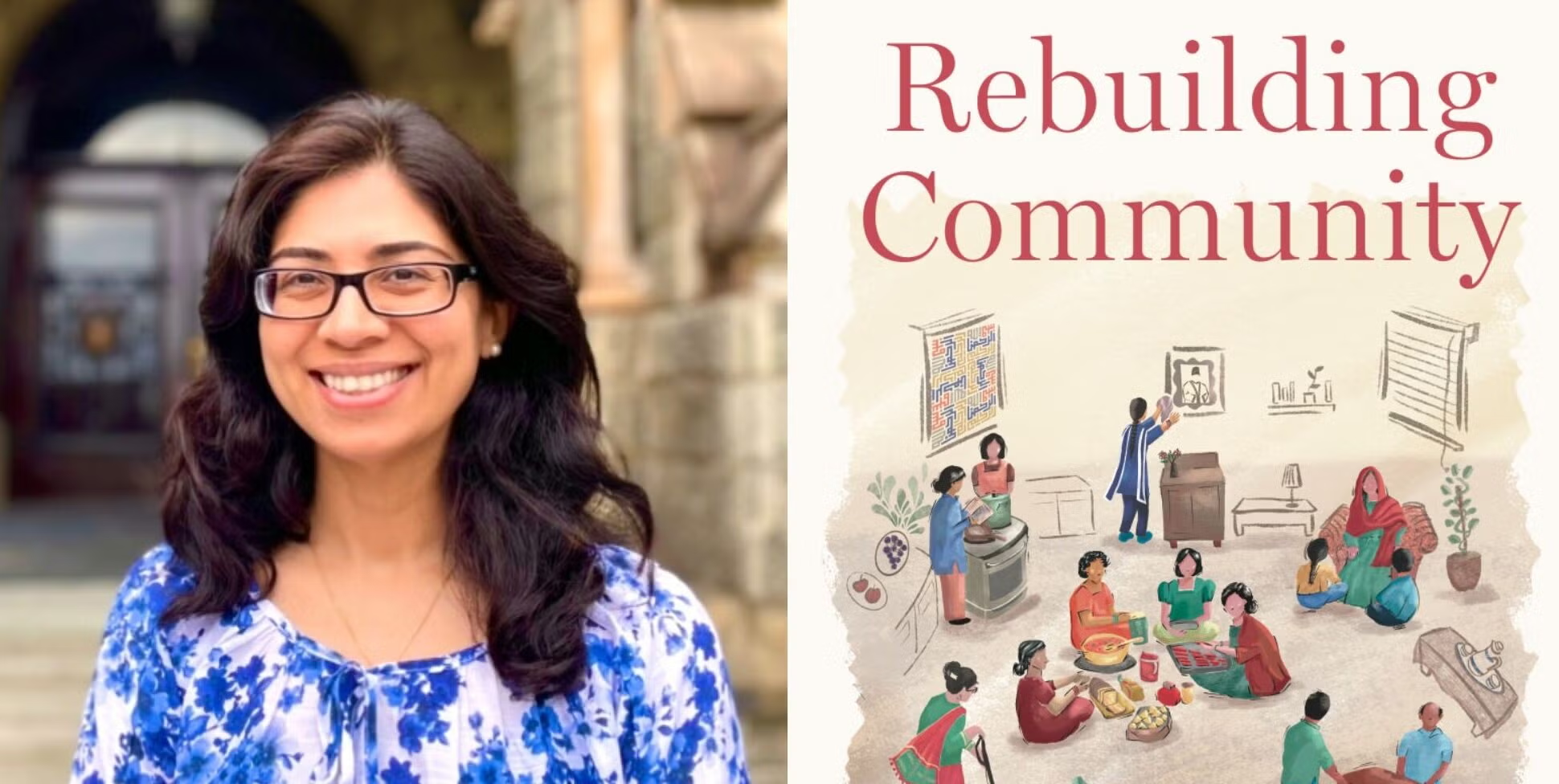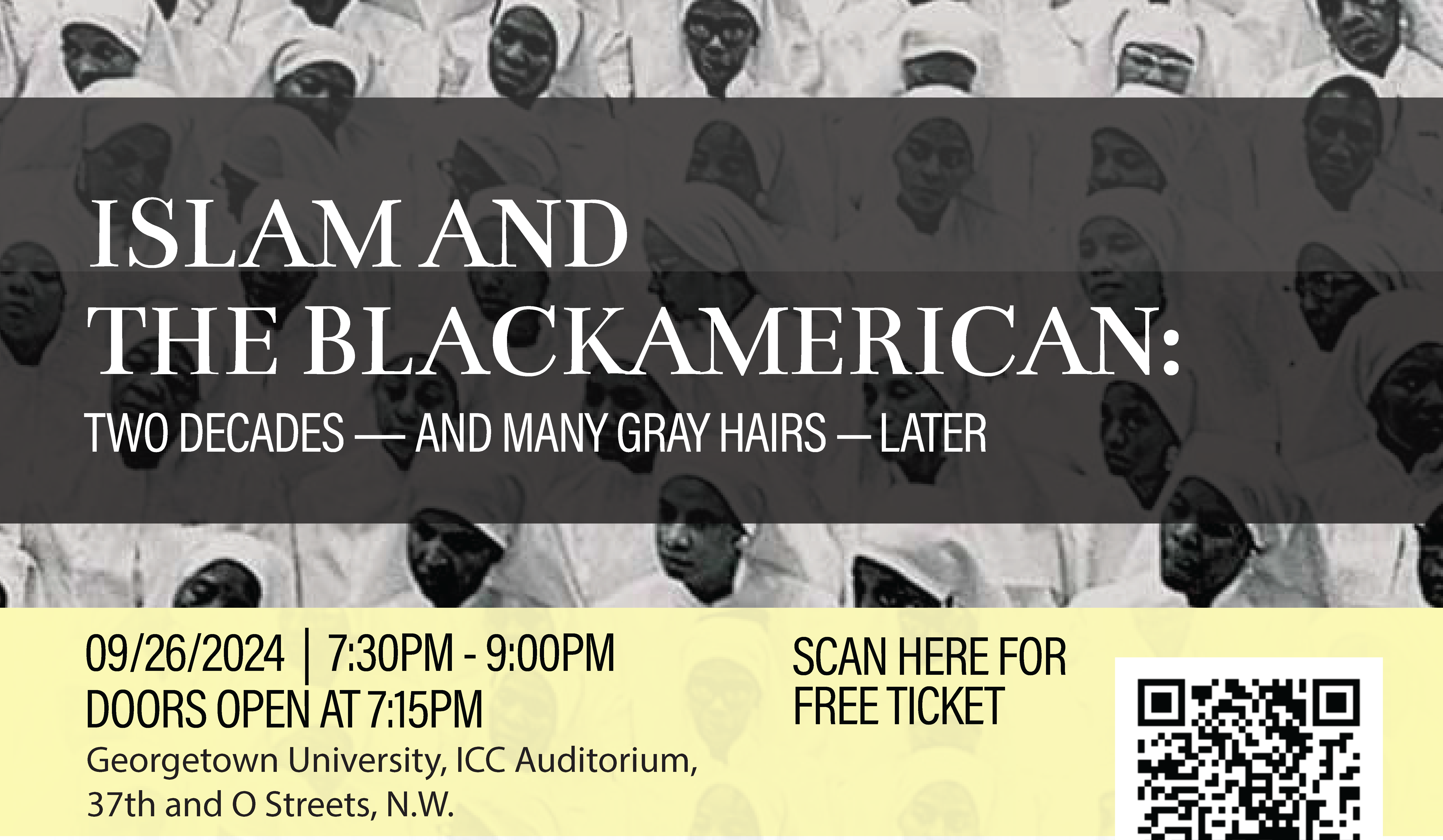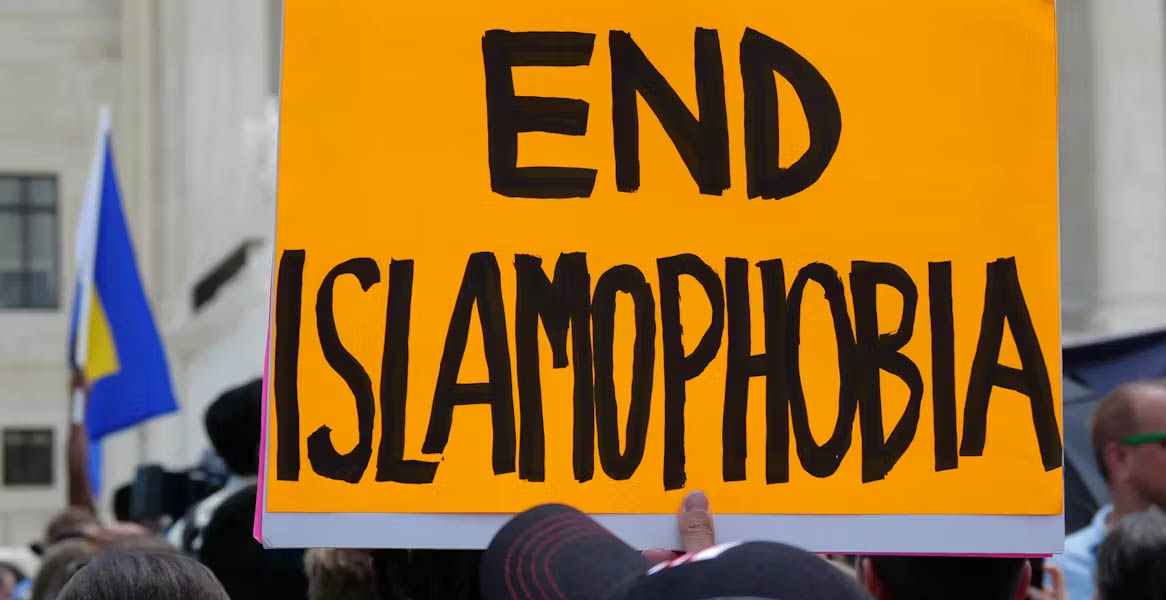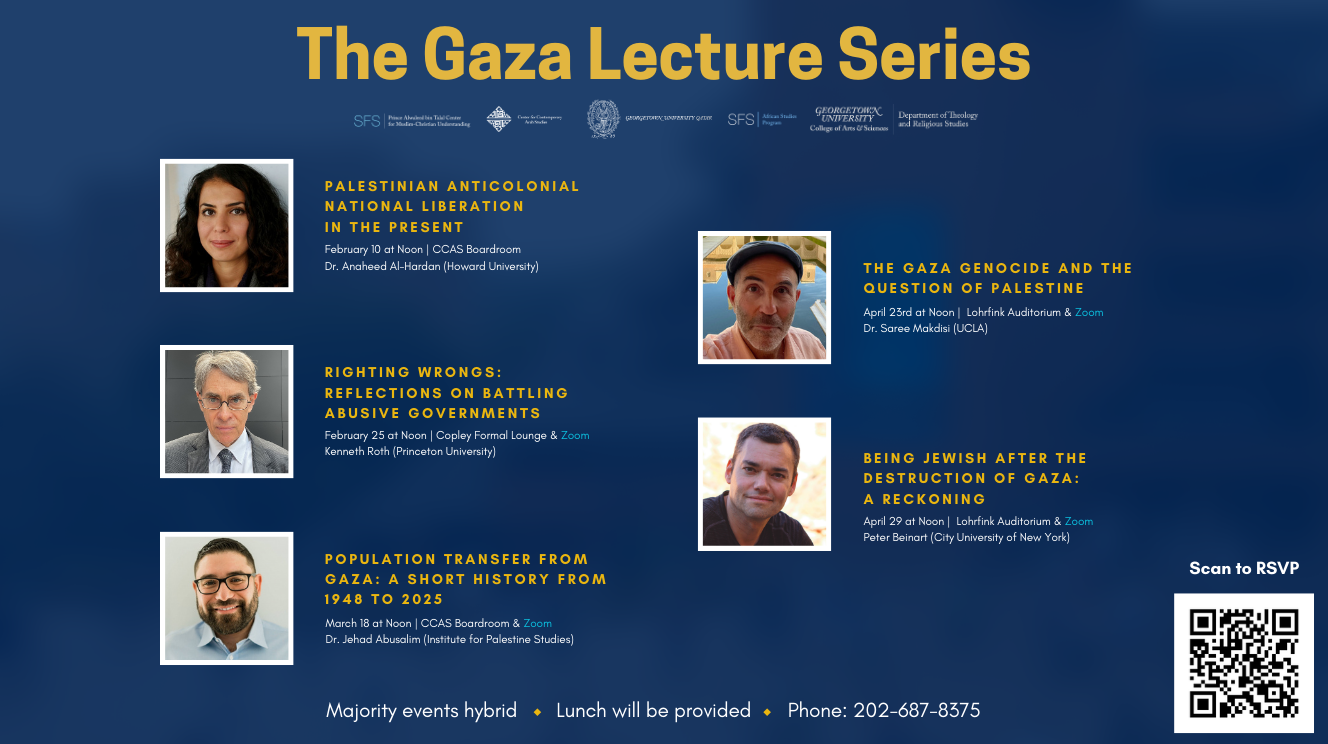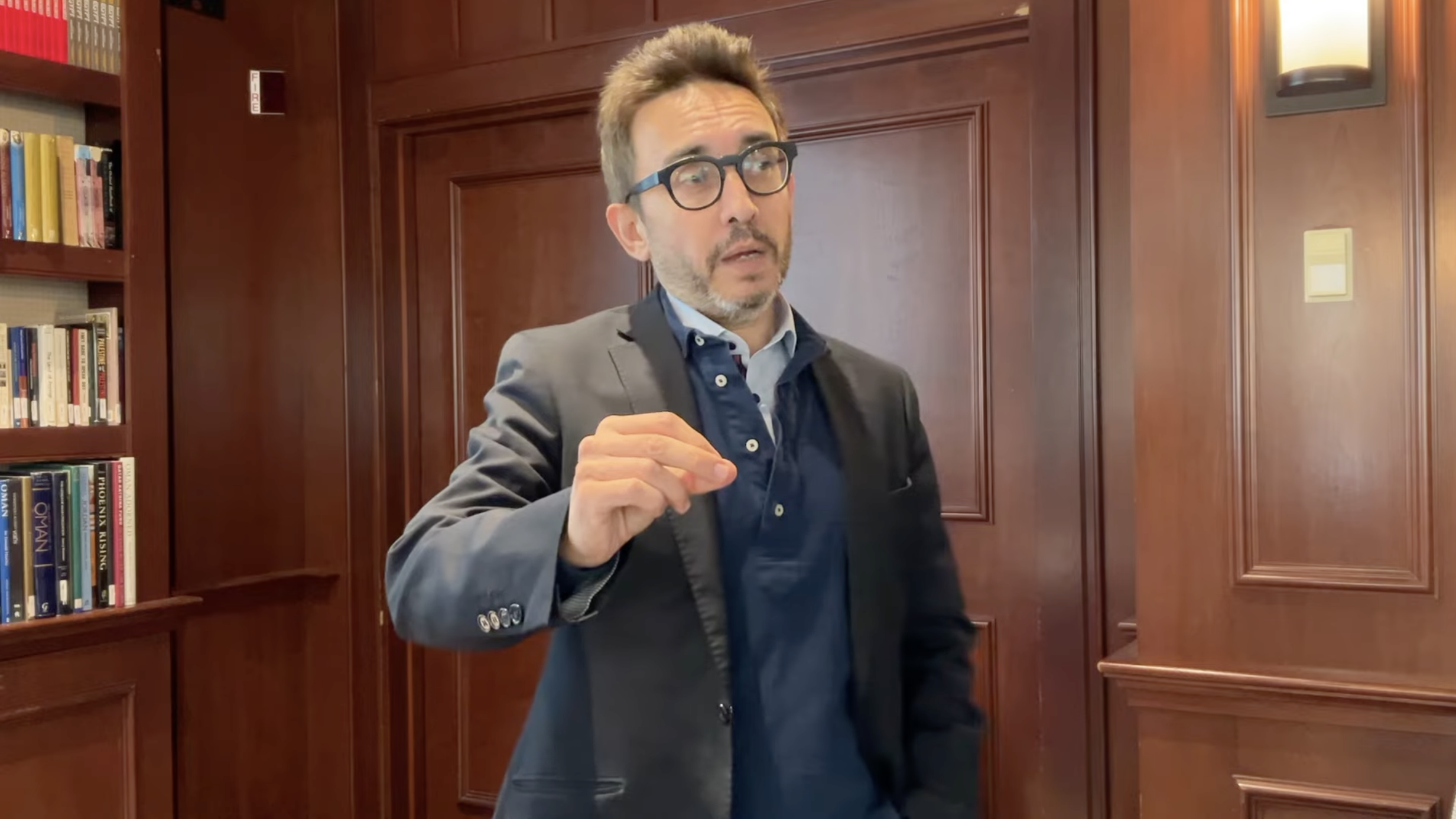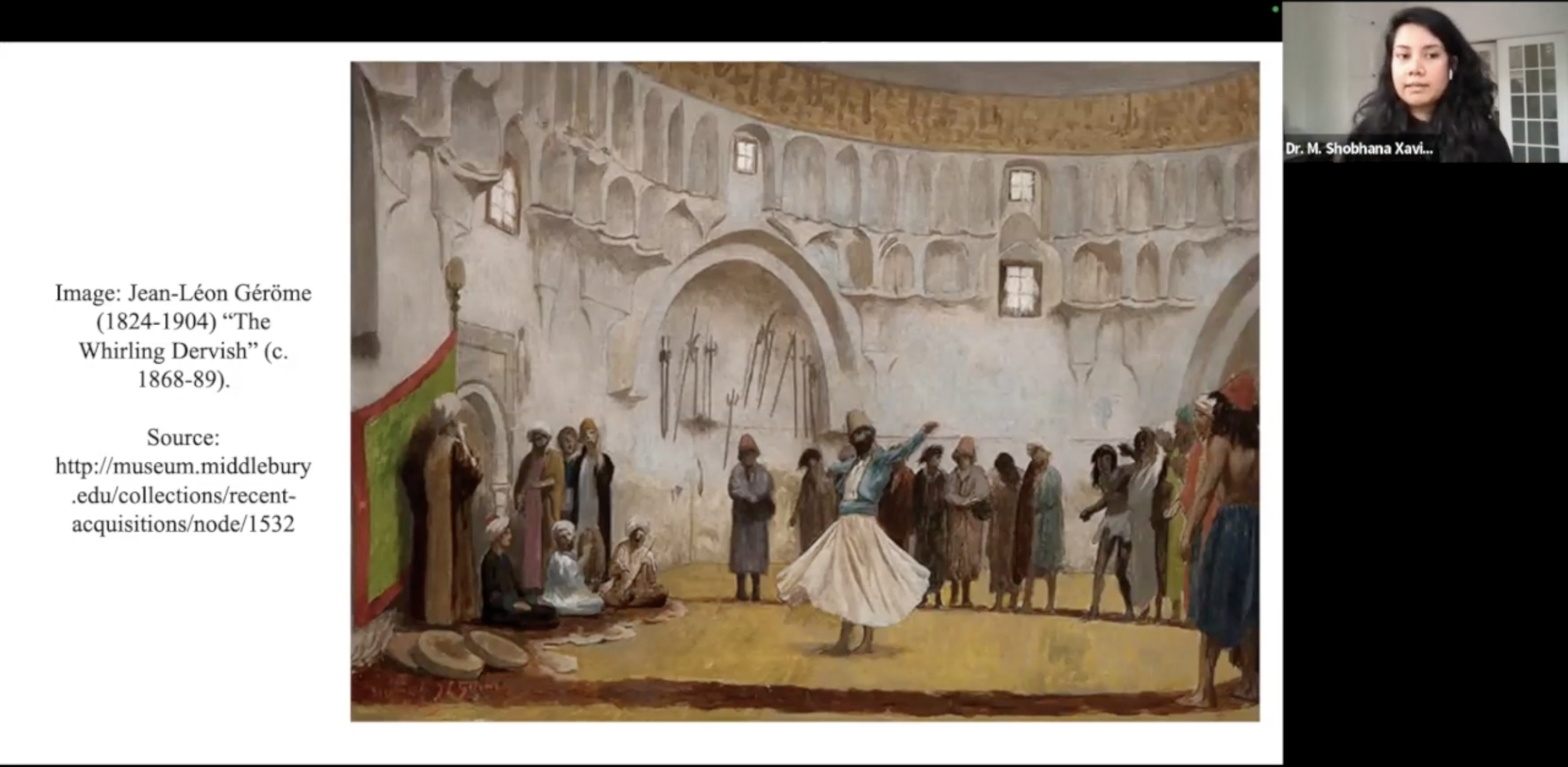News
- Announcements
- News
In Memoriam: Amb. Robert E. Hunter
Ambassador Robert E. Hunter was an American diplomat and scholar who had a long and distinguished career. During the Carter Administration, he served on the National Security…
January 23, 2026
- Faculty Publications
The Eighteenth Century: A World History by Dr. John O. Voll
he eighteenth century was a time of major global transitions. Movements of religious and intellectual revival challenged established ideas, European colonies emerged in the…
April 21, 2025
- Faculty Publications
- News
Shenila Khoja-Moolji Named Finalist for American Academy Award.
The American Academy of Religion (AAR), the largest academic organization for religious study, named a book written by a Georgetown professor at the Prince Alwaleed bin Talal…
April 21, 2025
- Event Coverage
- News
- Videos
Syria’s Morning After: A Counterrevolution?
ACMCU presents a discussion with Dr. Fawaz Gerges, Professor of International Relations and Chair in Contemporary Middle Eastern Studies at the London School of Economics and…
April 20, 2025
- Event Coverage
ISLAM AND THE BLACKAMERICAN: Two Decades-and Many Gray Hairs-Later
The Alwaleed Center for Muslim-Christian Understanding and the Unity Productions Foundation were proud to present Islam and the Blackamerican: Two Decades-and Many Gray Hairs-…
April 20, 2025
- Featured News
- News
- The Bridge Initiative
Statement Commemorating the International Day to Combat Islamophobia
The latest figures from multiple countries underscore the severity of this escalating threat. According to the Council on American-Islamic Relations (CAIR), the leading Muslim…
March 14, 2025
- Event Coverage
- News
- Videos
Trump’s Ethnic Cleansing Plan for Gaza
Donald Trump’s plan to establish U.S. “ownership” over and “clean out” Gaza has prompted global condemnation and outrage, with many alleging the plan is nothing less…
March 5, 2025
- Event Coverage
- News
2025 Gaza Lecture Series
This Spring, the Alwaleed Center for Muslim-Christian Understanding, in partnership with the Center for Contemporary Arab Studies, the African Studies Program, the Department…
January 30, 2025
- Event Coverage
- Videos
Gaza, Ukraine and the Remaking of Global Order
Join ACMCU and partners for a discussion with Dr. Bruno Maçães, New Statesman foreign correspondent. Looking at what he calls a “revolutionary moment,” #BrunoMaçães…
December 9, 2024
- Event Coverage
- Videos
Book Talk: Feminism, Tradition and Change in Contemporary Islam
Feminism, Tradition and Change in Contemporary Islam aims to understand Muslims’ relationship with change in Islam. Specifically, it explores why Muslims are resistant to…
December 2, 2024

